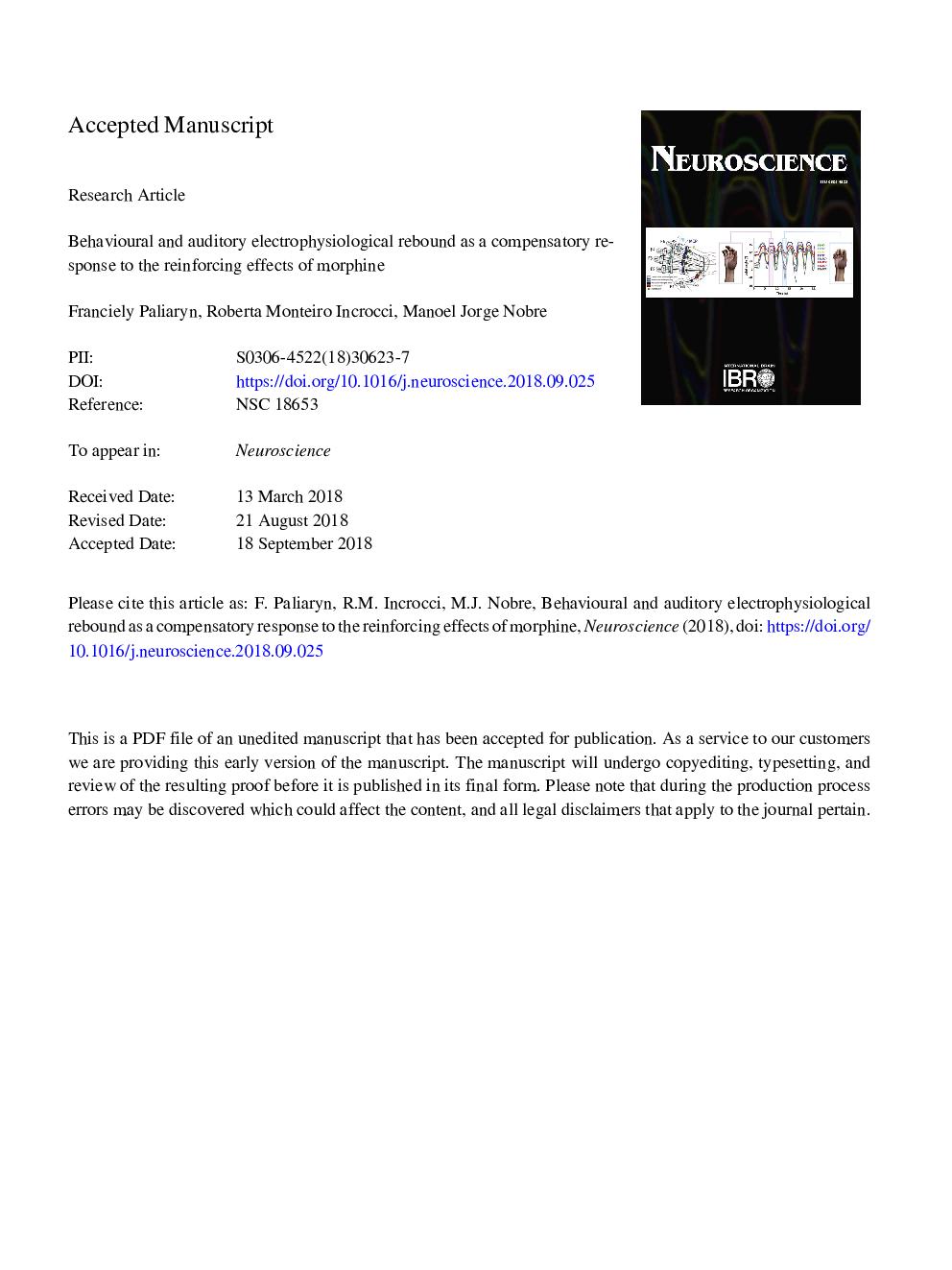| کد مقاله | کد نشریه | سال انتشار | مقاله انگلیسی | نسخه تمام متن |
|---|---|---|---|---|
| 11013170 | 1797176 | 2018 | 25 صفحه PDF | دانلود رایگان |
عنوان انگلیسی مقاله ISI
Behavioral and Auditory Electrophysiological Rebound as a Compensatory Response to the Reinforcing Effects of Morphine
ترجمه فارسی عنوان
بازخورد الکتروفیزیولوژیک رفتاری و شنوایی به عنوان پاسخ جسمی برای تأثیرات تقویت کننده مورفین
دانلود مقاله + سفارش ترجمه
دانلود مقاله ISI انگلیسی
رایگان برای ایرانیان
کلمات کلیدی
موضوعات مرتبط
علوم زیستی و بیوفناوری
علم عصب شناسی
علوم اعصاب (عمومی)
چکیده انگلیسی
Auditory-evoked potentials (AEPs) can be modified by associative learning, where the appearance of learned compensatory responses (CCRs) may result in the emergence of drug withdrawal symptoms and relapse. Although CCRs' influence on later attentive and cognitive domains has been extensively examined, contextual conditioned tolerance occurring in preattentive mechanisms operating at earlier stages of information processing has remained largely unexplored. To extend our knowledge on this subject, compensatory changes on the motor and emotional aspects of behavior evoked by contextual cues were investigated with an electronic open field in morphine-pretreated rats challenged with two morphine overdoses (40 and 80â¯mg/kg). CCRs influence on the AEPs recorded in the central nucleus of the inferior colliculus (CIC) was analyzed with the help of a field potential recording device and a two-chamber shuttle box placed inside a Faraday cage system. The emergence of electrophysiological CCRs was analyzed by recording AEP latency and amplitude elicited in the central nucleus of the IC (CIC) with the aid of a field potential recording device and a two-chamber shuttle box placed inside a Faraday cage system. Behavioral analysis indicated that CCRs ensue in non-familiar contexts. Electrophysiological data revealed increases in the amplitude of AEPs evoked in a non-familiar context. Our results indicate that behavioral learning responses emerge following Pavlovian conditioning even with the use of low and regular doses of morphine over a short-term treatment. Changes in the CIC electrophysiology may indicate that the development of drug dependence occurs covertly in the early stages of sensory information processing.
ناشر
Database: Elsevier - ScienceDirect (ساینس دایرکت)
Journal: Neuroscience - Volume 392, 10 November 2018, Pages 66-76
Journal: Neuroscience - Volume 392, 10 November 2018, Pages 66-76
نویسندگان
Franciely Paliarin, Roberta Monteiro Incrocci, Manoel Jorge Nobre,
